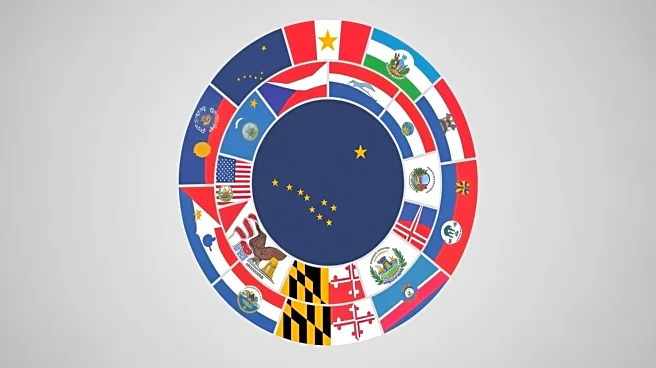What's Happening?
President Trump has approved major disaster declarations for Alaska, Nebraska, North Dakota, and the Leech Lake Band of Ojibwe, while denying requests from Vermont, Illinois, and Maryland. The disaster declarations enable
the Federal Emergency Management Agency (FEMA) to provide federal financial assistance for repairing public infrastructure damaged by disasters and, in some cases, offer survivors money for repairs and temporary housing. Trump's decisions have been noted to fall mostly along party lines, with him highlighting his electoral victories in states like Alaska and Missouri. Despite approving more disaster declarations than he has denied this year, Trump has expressed interest in phasing out FEMA, advocating for states to take more responsibility for disaster response and recovery.
Why It's Important?
The approval and denial of disaster declarations have significant implications for the affected states and communities. States like Alaska, which faced severe storms displacing thousands, will receive federal assistance to manage recovery efforts. However, states like Maryland and Vermont, which were denied assistance, may struggle to fund necessary repairs and support for affected residents. The politicization of disaster relief, as suggested by Maryland's Governor Wes Moore, could lead to disparities in how communities recover from natural disasters. Trump's approach to disaster declarations reflects broader policy debates about federal versus state responsibilities in managing disaster recovery.
What's Next?
Several states and one tribe are still awaiting decisions on their disaster declaration requests. The delay in approval can hinder crucial recovery projects, especially for small jurisdictions with limited budgets. For those denied, like Maryland, the state has begun deploying its own funds to support impacted individuals. The ongoing debate about FEMA's role and the federal government's responsibility in disaster recovery may continue to influence future policy decisions and disaster management strategies.
Beyond the Headlines
The denial of disaster declarations raises ethical and political questions about the criteria used to determine eligibility for federal assistance. The emphasis on party lines in decision-making could lead to increased scrutiny and calls for transparency in the process. Additionally, the potential phasing out of FEMA could shift the burden of disaster recovery to states, challenging their capacity to manage large-scale disasters without federal support.









